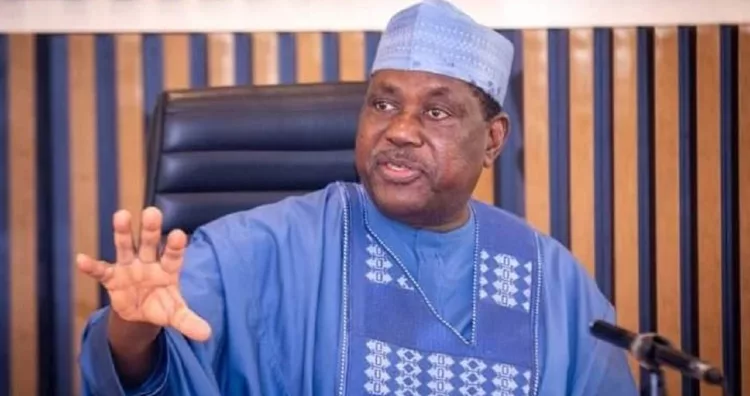Secretary to the Government of the Federation, George Akume has staunchly defended federal government’s proposed tax reform bills against allegations that they are designed to marginalize the northern region of the country.
In an interview on TVC’s Politics on Sunday by Femi Akande, the SGF articulated the government’s position, emphasising that the reforms are intended to foster national growth and enhance fiscal sustainability.
During the interview, Akume described the proposed tax reforms as “pro-poor” and “nationalistic,” encouraging critics to evaluate their objectives rather than politicizing them. He stated, “These bills are not targeted at any section of the country. I am from the north, and I am 100% supportive of these bills.”
According to Akume, the legislative process for these reforms has been thorough, having originated from the Federal Executive Council (FEC), passed through the Attorney General of the Federation (AGF), and is now in consideration by the National Assembly.
One of the most significant aspects of the proposed reforms is the tax exemption for individuals earning less than ₦800,000 annually and small businesses with revenues below ₦50 million.
Akume highlighted that these provisions aim to alleviate financial burdens on low-income earners and small enterprises, stating, “These provisions show that the bills are designed to support the poor and foster economic growth.”
In addition to income tax exemptions, Akume pointed out that essential sectors such as education and healthcare would be exempt from value-added tax (VAT). This move, he said is intended to ensure that critical services remain accessible and affordable for all Nigerians. “We are prioritising sectors that directly impact the lives of our citizens,” he noted.
Despite these assurances, some critics have expressed concern about potential inequalities in revenue distribution. Borno State Governor Babagana Zulum voiced his apprehension regarding how northern states might be affected by changes in VAT allocations, which some fear may disproportionately benefit wealthier states like Lagos and Rivers.
Akume in his response to these concerns emphasised that equitable revenue sharing is a core principle of the reforms. He explained that under the new arrangement, states will receive 55% of generated revenues while local governments will receive 35%. “With more local governments and states in the north, this region stands to gain significantly,” he asserted.
Akume criticised opposition figures for what he described as a misrepresentation of the bills’ intentions. “Many of those arguing against these bills have not even read them,” he said. He urged critics to engage in constructive dialogue rather than resorting to protests. “Protests don’t advance the cause of peace or dampen the spirit of those supportive of these reforms,” he added.
He acknowledged that resistance to the reforms has grown, attributing it partly to a lack of effective communication from the government regarding their benefits.
Akume encouraged Nigerians to channel their concerns through appropriate legislative processes, such as public hearings, rather than through demonstrations.
Expressing confidence in Nigeria’s democratic processes, Akume stated that a consensus would eventually emerge to address any issues with the proposed reforms. “Circumstances will build consensus. In a democracy, everyone has their say,” he remarked. He concluded by urging Nigerians to give these bills a chance to demonstrate their potential for modernizing Nigeria’s tax system and enhancing fiscal stability.
“For over 50 years, no attempt has been made to reform our tax system despite its archaic nature. These bills aim to ensure maximum value for the people and propel our economy toward prosperity,” he said.
DailySun
